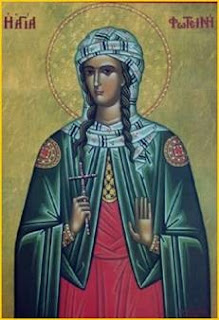Perhaps an old “gray
beard” should not be surprised that his university students are highly
interested in sex, but their apparent obsession with being for or against
homosexuality as the litmus test of social acceptability strikes me as simply
weird. Those who want to be liberal,
progressive, or inclusive tend to follow dominant voices in media and culture
in praising all things related to sexual minorities and reducing thoughtful
moral and spiritual discourse to simplified debates of “love” versus
“hate.” Those who want to be
conservative and traditional often make opposition to the endorsement of
same-sex unions or intimacy the watershed moral and political question of our
time, not unlike the signers of the Barmen declaration against the Nazified
German Christians of the 1930’s.
Granted, there are
profound spiritual, moral, cultural, and political questions at stake in how
our society and religious institutions respond to what I understand is now called
the LGBT community. But why matters that
concern directly such a small portion of the population seem to be viewed as
the defining issue of our time would remain a mystery to me, where it not for
the great social upheavals of the 1960’s.
Yes, I mean the civil rights movement and the sexual revolution. Without belaboring the point, we seem to have
in discussions about homosexuality and related matters the “perfect storm” of
political activism intertwined with hedonism.
The vast majority of hedonism
remains heterosexual, of course, as most men and women find themselves drawn to
intimate relations with members of the opposite sex. But the perspective that the ultimate good is
pleasure, happiness, and satisfaction on our own terms, however we as isolated
and self-defining individuals want it, is at the heart of our society’s take on
sexuality, marriage, and family. No
wonder promiscuity, pornography, and divorce are so popular today in a culture
of individuals for whom immediate personal happiness is the highest
standard. And no wonder that, regardless
of their sexual inclinations, good American hedonists want to extend the same
rights to pursue pleasure to everyone, regardless of their sexual
inclinations. On these terms, it would
be unfair not to do so.
Alas, that may be the
best our society can do at this point.
We have accepted the fiction that because people find themselves with
certain desires—whether married, single, or whatever-- that they must or at
least should fulfill them. We talk about
these matters as though being true to oneself in the pursuit of pleasure is the
ultimate meaning and purpose of the universe.
In contrast, some vocal advocates of more traditionally Christian views
of sexuality tend to give the impression that the problem is with a small
minority of the population who maliciously choose to have certain desires. A
better question, of course, is how we all choose to respond to whatever set of
disordered desires beset us, how we guard our thoughts, and how we respond when
immediate pleasure is down one path while faithfulness to Jesus Christ leads us
down another.
The most fundamental
issue is not straight versus gay or bi-sexual, but whether we are willing to
take up our crosses, deny ourselves, and serve Jesus Christ faithfully. The Orthodox Church has never blessed sexual
intimacy apart from the monogamous marriage of one man and one woman. Whether we find ourselves in such a marriage
or not, we are called to reject the lie that everything boils down to our
immediate pleasure, happiness, and satisfaction. We are called to accept the reality that we
all want some things are not good for us, paths to holiness, or pleasing to
God. We are not to judge anyone,
including ourselves, by our desires, but instead to undertake practices such as
prayer, fasting, generosity to the needy, mindfulness, forgiveness, and
reconciliation by which we open ourselves more fully to the eternal joy that
Jesus Christ has brought to the world.
That joy is not so much immediate gratification as a foretaste of the
eternal blessedness to which our struggles and unfulfilled longings may open us
in new ways.
As anyone who has
reached a certain age will know, the fundamental question here is not sex, but
the meaning and purpose of our lives.
It’s not as easy as this group versus that group because we all stand in
need of the mercy of a Lord before Whom all our obsessions and divisions are
revealed to be less than holy. The
teachings of Orthodox Christianity about sex are clear, unchanging, and true, but
it would be a mistake to give the impression that the overriding spiritual and
moral issue of our day boils down to our stance on an issue that is not a
pressing intimate struggle for most of us. To do so would be to accept a
distraction that lets us off the hook of our own calling to fight our passions,
deny ourselves, and reorder our desires in ways that bring us more fully into
the life of Christ.
So I will continue to
challenge my students to reject the categories of mainstream culture, whether
right or left, when discussing sexuality.
The truth is that neither liberation nor traditional values will make us
partakers of the divine nature. That’s the
work of the Holy Spirit to Whom we open ourselves by repentance, humility, and
selfless love for the Lord and our neighbors.
This deep journey cannot be reduced to political or cultural or even
moral slogans, much less to the pursuit of pleasure on our own terms.





